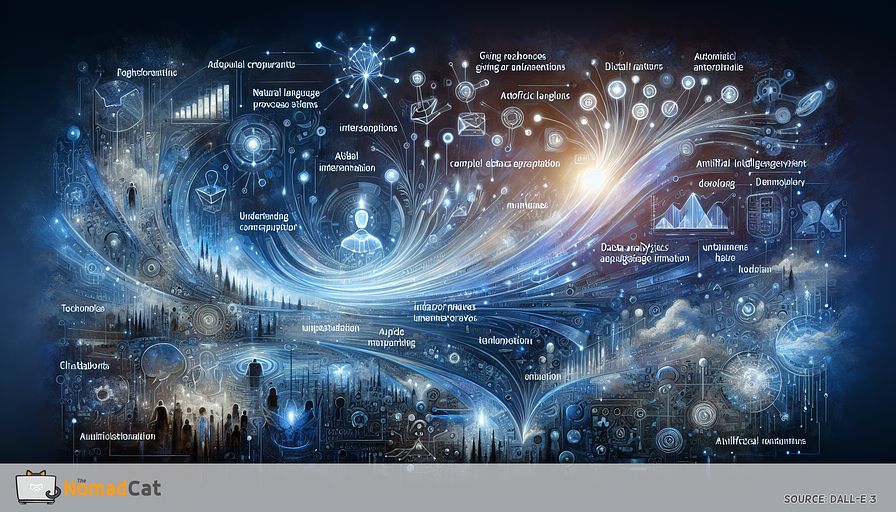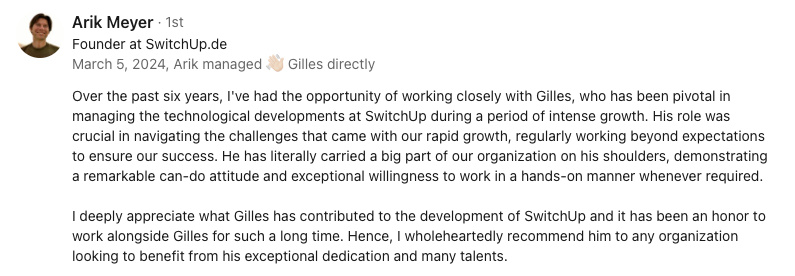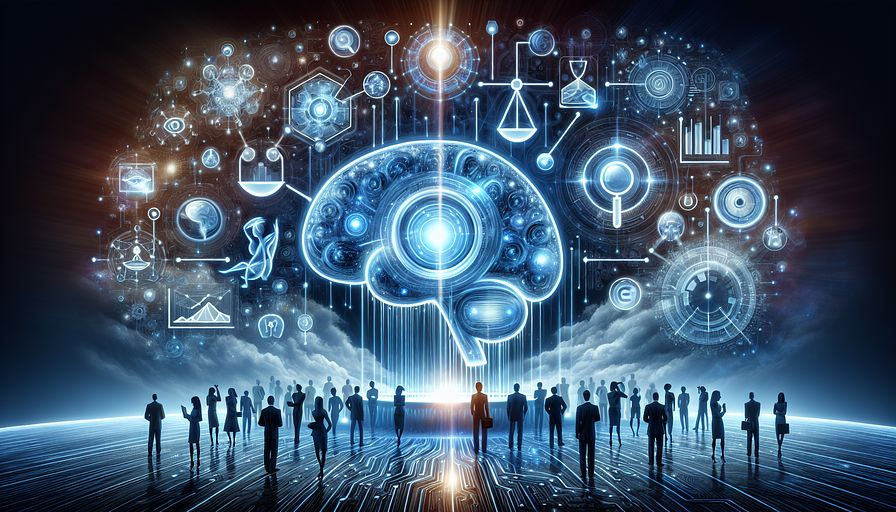Abstract:
Natural Language Processing (NLP) stands at the forefront of transforming how computers interact with human language, offering groundbreaking opportunities for businesses and technology leaders to enhance AI systems. This evolution enables machines to understand, interpret, and respond to human language in a way that is both meaningful and contextually relevant, revolutionizing user experiences across various platforms. From sophisticated chatbots to advanced analytics tools, NLP technologies are redefining the boundaries of machine intelligence, making it more accessible and efficient for diverse applications. The advancements in NLP not only propel AI development forward but also promise remarkable improvements in customer service, data analysis, and automated content creation. For technology executives, keeping abreast of these developments is crucial for driving innovation and maintaining a competitive edge in the rapidly changing digital landscape.
the significance of NLP in AI
Understanding and interacting with human language has always been a fascinating challenge for computers, and this is where Natural Language Processing (NLP) comes into play. As a leading technology, NLP serves as a bridge, enabling computers to comprehend, interpret, and generate human language in ways that feel natural to us. Through NLP, artificial intelligence (AI) systems can conduct conversations, understand nuanced sentiments, and even generate coherent and contextually relevant responses, significantly broadening the spectrum of their capabilities.
What makes NLP so significant is its transformative power in reshaping user interactions with technology. By allowing devices to process and respond to linguistic inputs, we step closer to seamless communication between humans and machines. This transformation not only elevates user experience but also unlocks new potentials in fields as varied as customer service, healthcare, and education. For technology leaders like myself, recognizing the potential of NLP is crucial, as it represents the future of human-computer interaction, making it an indispensable component of modern AI development.
nlp's impact on enhancing user experience
Natural language processing (NLP) profoundly transforms how users interact with technology, offering more intuitive and efficient interactions. One of the most tangible manifestations of NLP today is sophisticated chatbots. These chatbots utilize context-aware comprehension to understand user queries and provide relevant responses, transforming customer service experiences. Imagine sending a message about a product issue to a chatbot that not only understands your spoken language but also grasps the emotional undertone of your message. This capability greatly improves the overall user satisfaction, making interactions feel more personal and responsive.
Another noteworthy impact of NLP is observed in virtual assistants like Siri, Alexa, and Google Assistant. These platforms leverage NLP to interpret and respond to user commands, performing tasks ranging from setting reminders to controlling smart home devices. By understanding natural human language, these assistants bridge the gap between man and machine, making daily tasks more manageable and enhancing convenience.
How does NLP achieve this? Here are a few ways it contributes to a richer user experience:
- Contextual understanding: Unlike traditional keyword-based search systems, NLP enables devices to understand the context behind user queries. This means a more accurate and relevant response, whether the user is asking about the weather or seeking technical support.
- Sentiment analysis: NLP can detect emotions in text or speech, allowing systems to respond empathetically. This is particularly valuable in customer support, where understanding a frustrated caller's tone can lead to quicker and more effective resolutions.
- Personalization: By analyzing language patterns, NLP can adapt interactions based on individual user preferences. This level of customization makes users feel understood and valued, which is crucial for engagement and loyalty.
- Multilingual capabilities: NLP supports multiple languages, breaking down communication barriers and making technology more accessible to a global audience.
The ever-improving ability of machines to comprehend human language with nuanced precision is revolutionizing user expectations. Users now anticipate technology to not only perform tasks but to understand and react as another human would. This shift in expectations propels us to focus even more on enhancing NLP capabilities, ensuring our users have the most seamless and enriching experience possible.
From a personal perspective, I've observed firsthand how integrating advanced NLP solutions into our products leads to a notable uptick in user satisfaction. This isn't just about making technology smarter; it's about making it more intuitive and human-like, which ultimately fosters a deeper connection between the user and the technology they interact with daily.
nlp applications and their benefits
Let me share some fascinating applications of natural language processing (NLP) that are making waves in the tech industry. One significant application is in the field of advanced analytics and data analysis. By leveraging NLP, systems can sift through massive amounts of textual data, unveiling hidden patterns and generating insightful reports. This capability is a game-changer for businesses, as it transforms unstructured data into actionable intelligence.
Consider a scenario where companies analyze customer feedback from various sources like social media, surveys, and reviews. NLP algorithms can process this data to determine overall sentiment, identify recurring themes, and highlight areas requiring attention. This enables businesses to make data-driven decisions, enhancing their strategies, products, and services.
Moving on to another intriguing application, automated content creation, NLP excels in generating coherent and contextually accurate content. It's fascinating how AI can now draft articles, write reports, or even create marketing copy with minimal human intervention. For instance, content management systems can use NLP to produce drafts based on specific keywords or topics, saving writers considerable time and effort.
NLP-powered tools can also automatically summarize long articles, making information consumption more efficient. This feature is particularly valuable for busy professionals who need to stay updated without wading through voluminous texts. By summarizing key points, such tools make it easier to grasp essential insights quickly.
One of the most transformative areas where NLP shines is in customer service. Chatbots and virtual assistants are prime examples of how NLP offers real-time support and personalized solutions. When users interact with these systems, they experience a level of convenience and efficiency that traditional support channels struggle to match. NLP enables these bots to understand queries, provide instant responses, and even predict follow-up questions, making the entire process seamless.
These automated systems can also handle a significant influx of queries, reducing the burden on human agents. For complex issues, NLP can route users to the right department or escalate the matter for human intervention, ensuring that customers receive timely and accurate support. This not only improves customer satisfaction but also enhances the overall efficiency of support teams.
From a personal standpoint, witnessing the integration of NLP into our operations has been incredibly rewarding. It’s not just about the technological advancements; it’s about the tangible benefits we see daily. Better analytics lead to smarter business strategies. Automated content creation boosts productivity. Improved customer service transforms user satisfaction. These applications of NLP are enhancing how we operate and interact.
In essence, the applications of NLP are redefining various aspects of technology and business operations. By integrating NLP into our systems, we are not just making our tools smarter but also more user-centric, efficient, and insightful. This is the future we are building on—one where technology doesn’t just assist but actively enhances everyday experiences.
future prospects and advice for technology leaders
Looking ahead, the future of natural language processing (NLP) holds immense promise. We're on the brink of even more impressive breakthroughs that will deepen the integration of NLP into various facets of technology. As a technology leader, I believe it's crucial to stay ahead of these advancements. Keeping updated with the latest in NLP not only drives innovation but also ensures a competitive edge in our fast-paced digital landscape.
For technology executives, here are some strategic steps to consider:
- Continuous learning: Stay abreast of the latest research and developments in NLP. Join industry forums, attend conferences, and engage with thought leaders to remain informed and inspired.
- Invest in NLP talent: Hiring and nurturing skilled professionals in the field of NLP is essential. Their expertise will be pivotal in integrating cutting-edge NLP solutions into your systems.
- Collaborate and innovate: Work with academic institutions, research labs, and other tech companies. These collaborations can spark innovative ideas and lead to pioneering advancements.
- Prioritize NLP in AI roadmaps: Ensure that NLP is a core component of your AI development strategy. Focus on enhancing user interactions, providing personalized experiences, and delivering intelligent solutions that anticipate user needs.
- Ethical considerations: As we advance in NLP capabilities, it's vital to address ethical issues such as data privacy, biases, and transparency. By fostering responsible innovation, we build trust and credibility.
Embracing these strategies will enable us to harness the full potential of NLP, creating smarter, more responsive, and human-like AI systems. As we continue to push the boundaries of what's possible with NLP, our ultimate goal should remain clear: to enhance the user's experience, making technology an even more integral and intuitive part of everyday life.














